Colonialism, Slavery, Reparations and Trade: Remedying the 'Past'?
Speakers
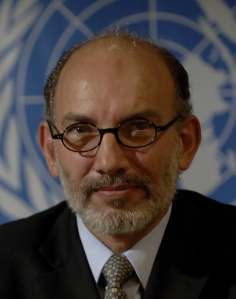 |
His Excellency Ambassador Luis Alfonso de Alba, Permanent Representative of Mexico at the UN,
First President of the Human Rights Council (2006-7) The Ambassador has substantive knowledge on the work and functioning of multilateral organizations, particularly those of the United Nations. In these fora, he has actively pursued the advancement of human rights and humanitarian issues, including through the strengthening and improvement of the relevant international mechanisms. |
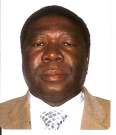 | His Excellency Ambassador Kwesi Quartey, Ghana's Ambassador to Ethiopia and Permanent Representative to the African Union. Former Deputy Permanent Representative of Ghana to the United Nations and Ghana's Representative on the International Law Committee of the UN General Assembly. Former Minister/Counsellor, Political and Economic Affairs, Ghana Embassy in Brussels, negotiations between ACP and EU. Barrister and Solicitor of the Supreme Court of Ghana. |
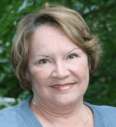 | Dinah L. Shelton, Manatt/Ahn Professor of International Law. Professor Shelton joined the George Washington University Law School faculty in 2004. Before her appointment, she was professor of international law and director of the doctoral program in international human rights law at the University of Notre Dame Law School from 1996-2004. She has lectured at many other universities and is a member of the Board of Editors of the American Journal of International Law. She is the author of numerous works including the prize-winning Remedies in International Human Rights Law |
 | Rhoda Howard-Hassmann,
Canada Research Chair in International Human Rights at Wilfrid Laurier
University, Waterloo, Ontario, Canada, and Professor, Department of Global
Studies and Balsillie School of International Affairs, Wilfrid Laurier
University. Dr. Rhoda E. Howard-Hassmann is also a Senior Research Fellow at the Centre for International Governance Innovation in Waterloo, and Professor Emerita at McMaster University. She holds a Ph.D. in Sociology from McGill University (1976), and is a Fellow of the Royal Society of Canada. In 2006 she was named the first Distinguished Scholar of Human Rights by the Human Rights Section, American Political Science Association. Dr. Howard-Hassmann is the author of Reparations to Africa, (see further information on the Links page) |
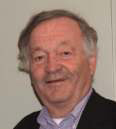 | Theo van Boven, Professor of International Law From 2001-204, Theo van Boven was UN Special Rapporteur against Torture. He has served as Director of Human Rights of the United Nations and has been a member of the United Nations Sub-Commission for the Promotion and Protection of Human Rights and of the Committee on the Elimination of Racism and Discrimination. He was also the first Registrar of the International Criminal Tribunal for the Former Yugoslavia. He is former President of the Netherlands Association of International Law; former Vice-President of the International Commission of Jurists; and a member of the Board of the International Movement against All Forms of Discrimination and Racism. |
 | Clemens Nathan, Joint Chairman, Consultative Council of Jewish
Organisations (CCJO); member of the Board of the Conference on Jewish Material
Claims Against Germany & Austria. He has worked with victims problems from the Holocaust for many years, both in negotiating and working on restitution problems worldwide. The Clemens Nathan Research Centre was named after him both for his work at the Claims Conference and at the United Nations Human Rights Commission where he is Chairman of an NGO accredited there. The main work has been dealing with the problems of victims and helping in the draft of the UN Resolution for the General Assembly in creating the basic principles and guidelines on the right to indemnity and reparation for the victims of gross violations of international human rights law which was passed by the third Committee unanimously in 2005. |
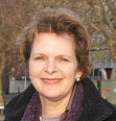 | Madge Dresser, F.R.Hist.S., Reader in History, University of the West of England, work has dealt with questions of national identity, the position of ethnic and religious minorities and the history of slavery in 18th century Britain. Longstanding interest in social justice and ‘history from below’. |
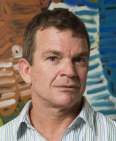 | Paul McHugh, Reader in Law, University of Cambridge. Lawyer with particular interest in property and constitutional law. Numerous publications in main research interest, tribal claims in Commonwealth countries. Advisory work to several governments and tribal groups. |
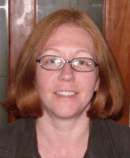 | Katherine Bracegirdle, Solicitor, Lecturer School of Law, University of Sheffield, Member of the Institute of Commercial Law Studies Research Cluster. |
 | Esther Stanford, Esther Stanford is a Jurisconsult, public lecturer and scholar activist who has been a long-standing researcher and campaigner on behalf of the global Pan-Afrikan Reparations Movement. In this regard she serves as the Co-Vice Chair of PARCOE the Pan-Afrikan Reparations Coalition in Europe. On behalf of PARCOE, Esther is a broadcaster on Voice of Africa Radio. She is also the co-founder of the Peoples Liberation Law Colloquium and legal advisor to the Black Quest for Justice Campaign which initiated its ‘Law as resistance’ legal and extra-legal strategy in furtherance of Pan-Afrikan Reparations in 2003. Esther has been a Trustee of Anti-slavery International since 2004. |
 | Rohan Kariyawasam, is a Senior Lecturer in Commercial Law, Cardiff Law School. Prior to joining Cardiff he was a lecturer at the University of Essex and a member of the Human Rights Centre and Director of their Program in Information Technology, Media and E-Commerce Law, and a Fulbright Scholar at Harvard Law School. He qualified as a solicitor with Denton Wilde Sapte and has worked as a consultant with several global law firms specialising in commercial and WTO law. His recent book, International Economic Law and the Digital Divide: A New Silk Road? looks at the application of WTO law to addressing the technological divide between the developed and developing worlds. Currently, he is engaged in a three year AHRC project due for completion in 2009 on fair trade networks, looking specifically at trust in fair trade, the use and regulation of technology in fair trade, and free v. fair trade. He is a Fellow of the Royal Society of Arts and the founding trustee to the Rahula Trust, which provides sponsorship to poor, academically gifted children in the developing world. |
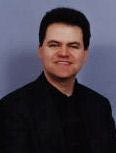 | Steve Peers received a B.A. (Hons.) in history from McMaster University (Canada) in 1988, an LL.B. from the University of Western Ontario (Canada) in 1991, an LL.M. in EC Law from the London School of Economics in 1993, and a Ph.D from the University of Essex in 2001. His research interests include EU Justice and Home Affairs, External Relations, Human Rights, Internal Market and Social Law. He has written over fifty articles on many aspects of EU law in journals including the Common Market Law Review, European Law Review, International and Comparative Law Quarterly, Yearbook of European Law and the Cambridge Yearbook of European Legal Studies, as well as many chapters in books. He has worked as a consultant for the European Parliament, the European Commission, the Foreign and Commonwealth Office, the House of Lords Select Committee on the European Union and the Council of Europe, and contributed to the work of NGOs such as Amnesty International, Justice, Statewatch and the Immigration Law Practitioners’ Association. |
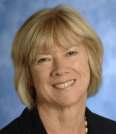 | Sheila Dziobon Dr. Dziobon is a Senior Lecturer in Law, School of Law & Social Science, University of Plymouth. "My interest in this area was raised during 2007 at a museum exhibition in Plymouth to mark the 200th anniversary of the Abolition of the Slave Trade Act 1807. I have a long standing research interest in autonomy and self-determination and this enquiry builds on previous research and reading. |
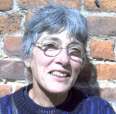 | Marika Sherwood is a founder member of the Black & Asian Studies Association and edited the BASA Newsletter until 2007. The author of numerous books and articles on the history of black peoples in the UK, as well as on education, she is Honorary Senior Research Fellow at the Institute of Commonwealth Studies, University of London. |
 | John Packer is Professor and Director of the Human Rights Centre at the University of Essex in the UK. He is also Senior Adviser for the global Initiative on Conflict Prevention through Quiet Diplomacy and is a member of the Expert Advisory Panel on Dialogue, Diversity and Social Cohesion of the Club de Madrid. Until February 2004, Prof. Packer was Director of the Office of the OSCE High Commissioner on National Minorities, where he previously served as Senior Legal Advisor. From 1991 to 1995, he was a Human Rights Officer at the United Nations, where he investigated serious violations of human rights. |
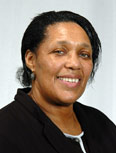 | Fernne Brennan is a Senior Lecturer in the School of Law. Her current research interests focus on institutional racism and the law. She provides race equality law consultancy and training to Westminster Briefing, the Home Office and has worked with the National Centre for Social Research on Immigration decision-making in the light of the Race Relations Act 1976. Present work includes a joint paper with Sociolinguists at Kings College regarding interviewing and the Race Equality Duty. She is also project leader for major work concerning ethnic monitoring and the Race Equality Duty. She has written several papers on the question of reparations for trading in slavery, and issues concerning racial and religious hate crimes and EU Race Equality law. |